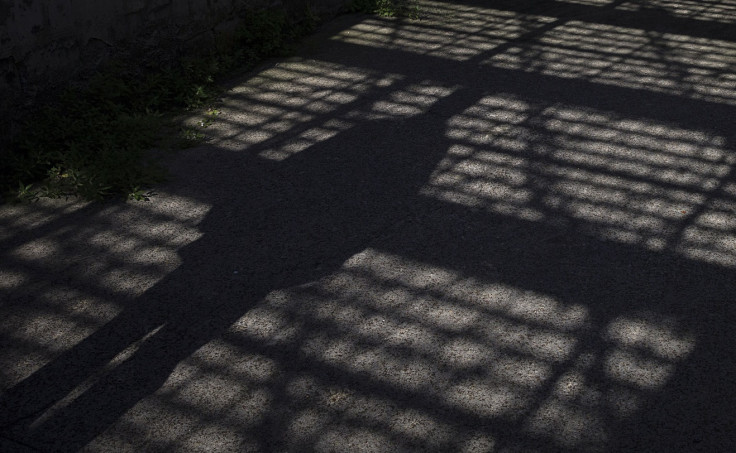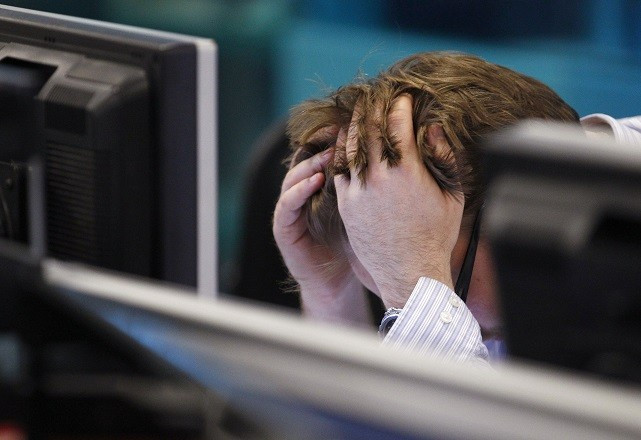Men, eating disorders and mental health: 'The last thing sufferers need is gender wars'

Mike Turnpenny Stevens is 26 and worked as a property manager before he was forced to resign due to anorexia.
"I don't know exactly when or why I became unwell," he says. "My lowest moments were sitting at work and all I could focus on was skipping eating, how I could get away with it or working out when I would next be able restrict my food. Anorexia became a full time job."
"In October of last year, it became too much and I had stopped sleeping. I'd lay awake at night. My mind had gone. It peaked when I accidentally overdosed on sleeping pills, Paracetamol, Ibruprofen, along with whiskey," he says. "It wasn't a suicide attempt, it was a quest to sleep and escape the demons for a few hours."
Eating disorders have long been perceived as an issue affecting women and girls, but this is far from accurate. Of the estimated 1.6 million people with an eating disorder in the UK, between 10% and 24% are male. Stevens is now in the process of recovery from his anorexia, with the help of GPs, therapy and open groups, but many men still suffer alone, with no medical assistance or support.
Since 2000, the number of men being diagnosed with an eating disorder has risen by 27% - a rise interpreted by many as a reflection of the increasing pressure on men to care more about their image. But the problem is more complicated. The stigma surrounding mental health and men has shrouded their suffering in silence.
"The last thing eating disorder sufferers need is gender wars. We're all in the same boat, we all fight our demons and we all need help equally," Stevens says.
Gendered roles and stigma
Eating disorders are still widely stereotyped as a modern phenomenon solely affecting privileged young girls who can afford to control what and when they eat. Among other factors, the media and its role in developing an obsession with image has long-been associated with anorexia, bulimia, binge-eating and other devastating conditions. In reality, however, the first descriptions of anorexia in the West date back to the 12<sup>th and 13<sup>th centuries. It is not a lifestyle choice, it is a mental illness that is non-gender specific.
Yet stigma surrounding men with eating disorders prevail. Those who come forward about their illness risk being dismissed as attention seeking, those who don't continue to suffer – accelerating the decline in male mental health. According to the most recent ONS figures, the rate of male suicide is the highest it has been in over a decade.

Mary George, of the eating disorder charity B-eat, tells IBTimes UK that men are becoming increasingly vulnerable to disliking their bodies and seeking to reshape them. "The media, television, people around you and the culture pressures all play their own part in the consciousness of your image," she says. "Unsurprisingly, they are retreating into toxic worlds of eating disorders."
"There is no doubt that there is still a great deal of stigma and misunderstanding surrounding males and eating disorders which are generally perceived to be a 'women's disease' – making it so much more difficult for men to come forward and ask for help."
Undiagnosed
Part of the problem is our enduring Neanderthal concept of masculinity. Yet gendered roles and the expectation that eating disorders disproportionately affect women – statistics state that one in ten eating disorders affect men – may have led to many cases among men going undiagnosed. With this in mind, it might not simply be that cases are on the rise, but that we are beginning to recognise the symptoms more.
Research certainly substantiates this idea. A study carried out by the University of Oxford and the University of Glasgow published in the British Medical Journal last April found that despite making up around a quarter of eating disorder cases, men are "underdiagnosed, undertreated and underresearched".
"Our findings suggest that men may experience particular problems in recognising that they may have an eating disorder as a result of the continuing cultural construction of eating disorders as uniquely or predominantly a female problem," said Dr Ulla Raisanen and Dr Kate Hunt, who led the study.
"Mental health has this false label attached that people choose that path, which is nonsense," Stevens says. "With my anorexia people couldn't understand why I wasn't eating. It's like having the worst bully in the world in your head telling you what you can and can't do."
Anyone concerned about an eating disorder should contact their GP. Visit the B-eat website for help and information: www.b-eat.co.uk.
© Copyright IBTimes 2025. All rights reserved.




















